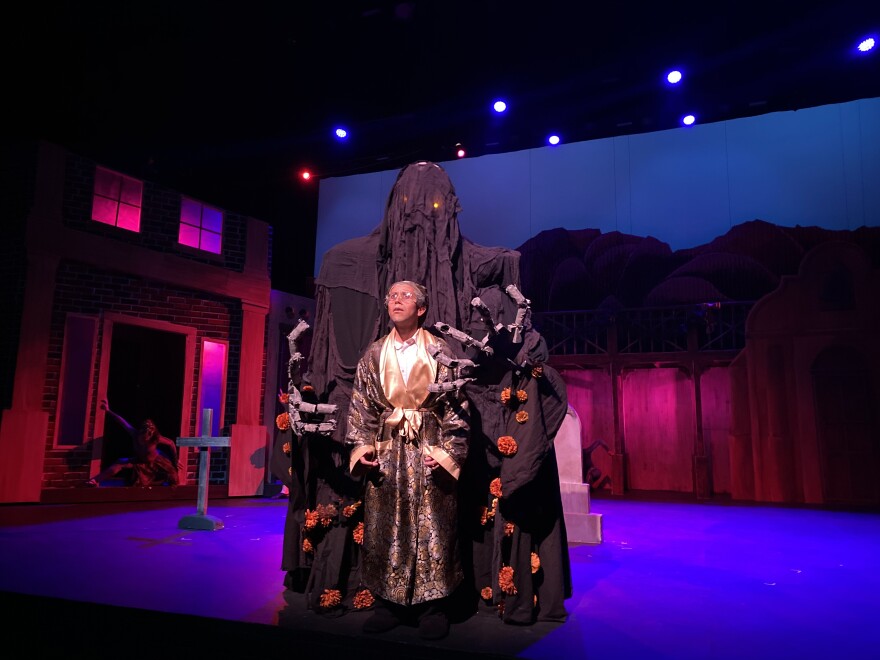“Marley was dead, to begin with. There is no doubt whatever about that.”
Those are the classic opening lines to Charles Dickens “A Christmas Carol.”
What if Dickens’ 1843 novella was plucked from 19th century England to the 20th century Texas-Mexico border?
The Department of Theatre & Dance at the University of Texas at El Paso has put on a production of Dickens’ “A Christmas Carol” since 2006. They adapted the story to la frontera in 2018.
Adriana Dominguez, assistant professor and director of Theatre Programs at UTEP, co-adapted “A Christmas Carol en la Frontera” with Jay Stratton.
She said the story needed to be revamped to make it more pertinent to the border community.
“I love the story of ‘A Christmas Carol,’” she said, “but so much of it has nothing to do with how I experience navidad. I mean, I've never had a Christmas goose, I don't know those things.”
Dominguez and Stratton took into account the English, Spanish and Spanglish spoken freely on the border and in the American Southwest and intertwined it with Dickens’ famous lines.
The setting isn’t specifically El Paso, but Dominguez said it’s presumed to be.
“We say it's ‘en la frontera,’ but we can definitely assume it's our frontera in the stage version,” she said. “We definitely have our beautiful mountains in the background, we have the beautiful star on the mountain.”
The pandemic ground to a halt all live theater productions. Dominguez and her colleagues brainstormed on how to still present “A Christmas Carol en la Frontera.”
They decided upon an hour-long radio play voiced remotely by all the actors and broadcast locally on El Paso public radio station, KTEP.

Director of the production, Greg Thompson, said it was a challenge to get stage actors to use their bodies and emote in the absence of an audience.
“We don't realize how much we use our body when we communicate,” said Thompson. He said the actors needed to trust themselves “to be sitting in their homes doing these weird things with their bodies in order to be able to imagine that you're in the settings.”
The characters are also uniquely fronterizos, borderlanders.
Scrooge and Marley are still “Scrooge” and “Marley.” Bob Cratchit is now “Roberto” Cratchit. Tiny Tim is “Tomasito.”
Dominguez says the shift in names also reflects the story’s theme of Scrooge's struggle with identity.
“A lot of us in la frontera have that struggle of where do I belong, how do I fit?” Dominguez said. “And we see that in Ebenezer, how he's trying to figure out, is he leaving his Mexican roots behind in order to make money? In order to move forward?”
It’s sometimes lost on us that Dickens’ story is, as director Greg Thompson says, “an unflinching account of social injustice,” but the tale of redemption and transformation ends with a heartwarming sentiment that translates in all languages:
“God bless us, a todos. God bless us, every one.”
Click here to listen to “A Christmas Carol en la Frontera” by the UTEP Department of Theater & Dance and KTEP.
TPR was founded by and is supported by our community. If you value our commitment to the highest standards of responsible journalism and are able to do so, please consider making your gift of support today.


